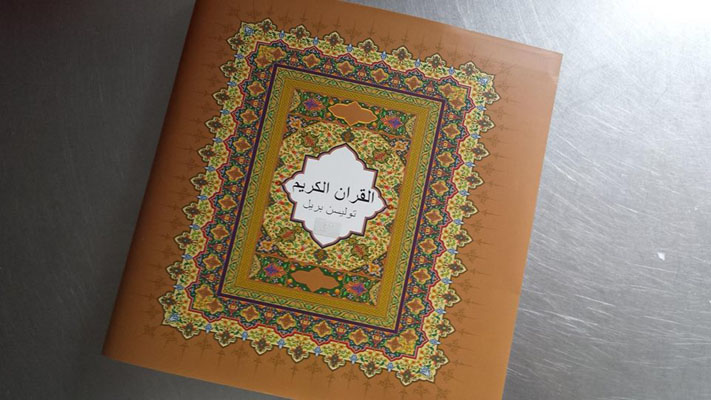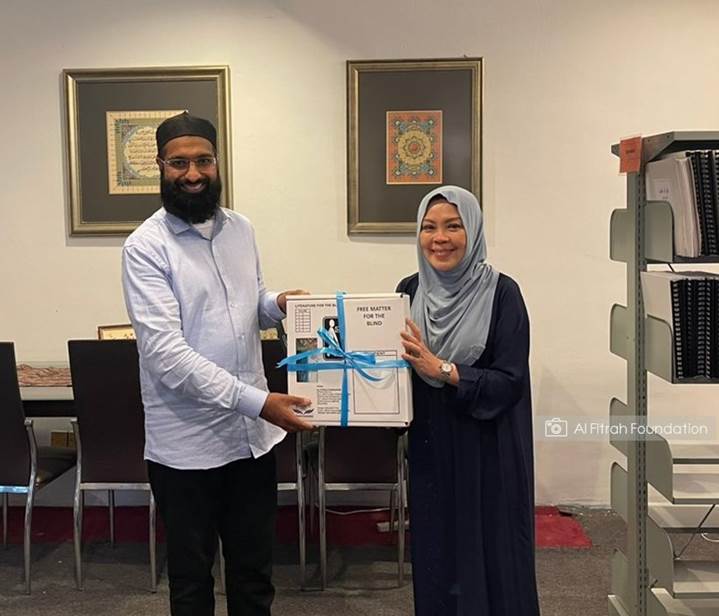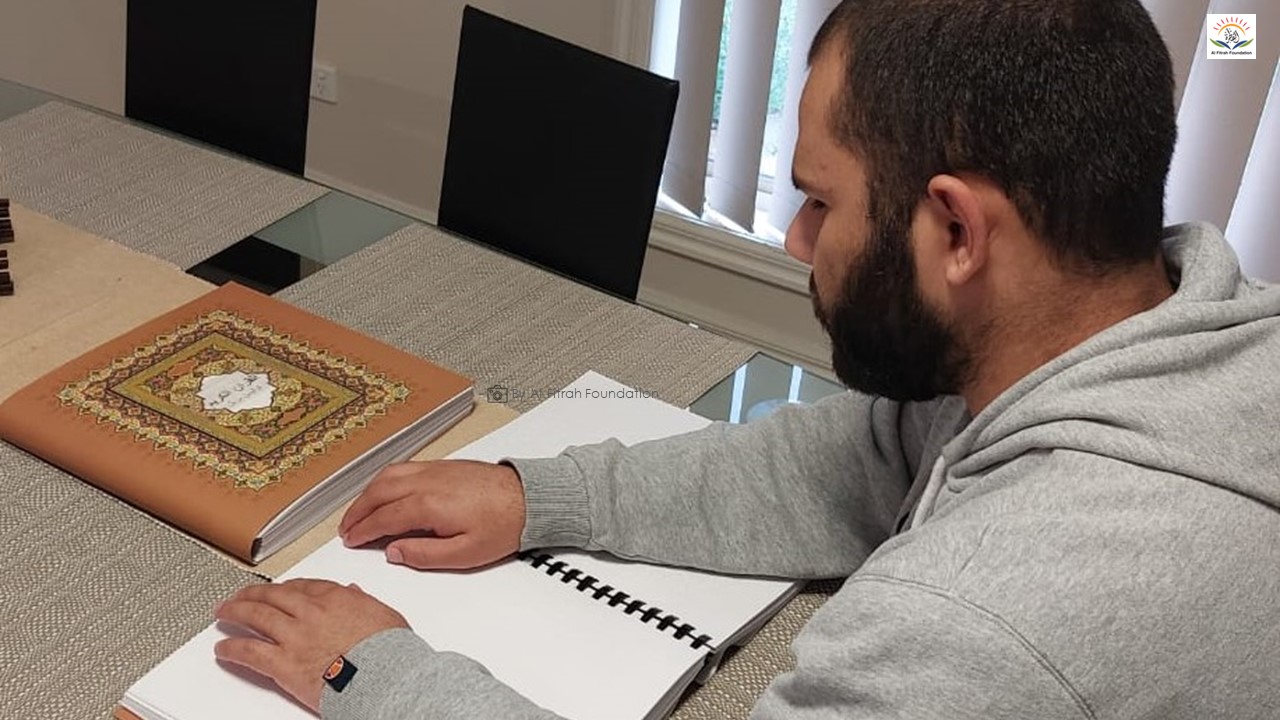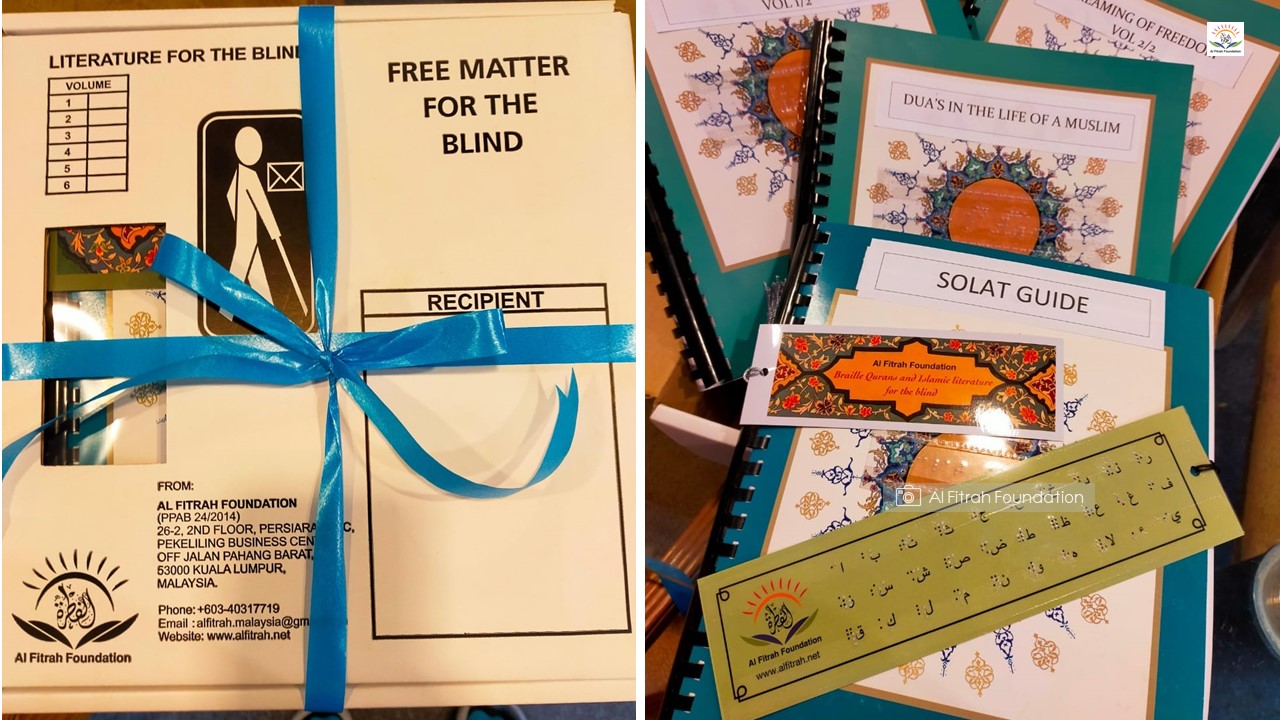In recent years, Qur’an, the holy book for Muslims, has come under increased scrutiny due to the widespread of Islamophobia and the growing threat of terrorism by certain extremist groups. It is considered by many as a book of hatred, anti-feminism, or even a ‘manual’ for terrorists. Some even went as far as planning to burn the book that is regarded as containing ‘the words of God’ by at least one billion people worldwide.
In midst of such extensive prejudice, it is perhaps not known widely that the sacred scripture is a source of comfort and relief for the disabled community. Long before the Convention of the Rights of Persons with Disabilities was enacted, the Qur’an provided guidelines on the issue of disability. It contains teachings and wisdom about how the disabled community should live their lives, and how society should view and treat those who were born a little different from them.
The basic premise that the Qur’an uplifts concerning disability is that there is no such thing as an imperfect being. All humans, regardless of their physical conditions, are considered the best of God’s creations, as stated in chapter At Tinverse 4. Those with disabilities are not considered imperfect, or flawed. It asserts that everyone can reach a full measure of perfection by developing the positive, existing traits of which our individualities are composed. The concepts of perfection and imperfection in the physical sense, therefore, have little application in the Qur’anic view of human life. By extension, so too do the concepts of normalcy and abnormalcy. This is because, as stated in chapter Al Hujurat verse 13, the noblest human beings in the eyes of God are the most deeply conscious of him. God’s measure of a human being’s worth depends not on physical appearances or material belongings, but rather on spiritual maturity and manners.
Moreover, the Qur’an elevates the principles of equality and justice. It is believed that human beings are created in two parts: body and soul. Our bodies may be created differently, some with disabilities and some without, some light skinned and some darker. However, our souls are identical. The soul has neither disability nor ethnicity. Through our souls, God teaches us equality, and through our bodies, God teaches us differences. Consequently, we learn that no matter how seem different we are on the outside, our most important component - the soul - is equally the same.
Unlike views that were widespread during pre-Islamic times, whereby a disability was regarded as a form of punishment, the Qur’an views disability as a test. The purpose of this test is to prove the level of one’s faith (chapter Al Ankabut verses 2-3) and gratitude to God (chapter Al Insaan verse 2). These two aspects, namely faith and gratitude, reap equal rewards from the Almighty. This means that disability could be turned into a land of opportunity for someone to reap God’s rewards as long as he is truly faithful that there is a wisdom behind his condition and is grateful for what God has given to him.
In addition, the Qur’an asserts that every burden given to human beings conforms to the person’s ability to bear. This verse is a guarantee from God to disabled people that they do not need to be troubled by their disabilities; especially when it comes to carrying out the commandments of God. The Qur’an attempts to remove any stigma and barriers to full inclusion of disabled people. It offers relief from certain commands and requirements so as to address the difficulties that arise from specific conditions. In fact, the Qur’an speaks about giving special accommodations to the disabled community. For example, it discusses the issue of Jihad - striving in the path of God - in which the disabled are afforded special waivers. It is said in chapter At Taubah verse 91 that these individuals are given permission to abstain from participating.
The Qur’an also states that “indeed, blindness is not in the eyes, but it is in the heart” (chapter Al Hajj verse 46). Through this verse, the Qur’an clearly reiterates that blindness from the perspective of Islam refers not to the physical eyes, but the heart. It is not concerned with an individual’s physical condition, whether he or she has the ability to see or not; rather, the most important thing is that the person has a sharp vision from his heart. He is able to distinguish between right or wrong, based on careful consideration of the heart instead of the eyes.
However, it is important to note that the Qur’an can be viewed from a wider perspective. Even though this verse talks specifically about blindness, it can be interpreted more widely. Through this, God actually wants human beings to know that the real disability is not in the body, but in the heart. It is not about whether or not we have physical impairments; rather, it is about how much we can obey God’s commandments and how well we treat those around us.
Even though today people with disabilities are often seen as objects of amusement, bullying, and mockery, the Qur’an clearly prohibits such behaviour for any reason. It is said that making fun of other people by laughing at them or calling them by inappropriate names is the hallmark of the wrongdoers and those who possess no feeling of humanity (chapter Al Hujurat verse 11). In this verse, God also says that those who are mocked may be better than those who mock. According to the Qur’an, the quality of an individual is not measured by his or her physical conditions, but by their faith and obedience to the Almighty. In this case, disabled people who do good to fellow human beings and follow God’s commandments have a much loftier position in the eyes of God, compared with those who do otherwise even though they may be in good physical health.
The Qur’an even narrated the story of the Prophet Muhammad (upon whom be peace) when, one day, he paid little attention to a blind man, Abdullah Ibn Umm Maktoom, who came to him. Even though this could be seen as a minor act of discourtesy on the part of the Prophet towards an individual with disabilities, this caused a sharp Qur’anic rebuke in which the Prophet was strongly reprimanded by God (chapter Abasa verses 1-13). Here, it is clear that the Qur’an does not tolerate any unpleasant treatment towards those with disabilities. Giving rancid face in front of them is considered to have transgressed God’s reasonableness, let alone mocking or belittling them. The historians reported that Ibn Umm Maktoom later became the symbol of inclusion in the Muslim community where he was appointed as the caller for prayer and was asked to lead the city of Madinah when the Prophet had to travel outside.
The widespread prejudice against the Qur’an in our time is due largely to the ignorance of the essential values and principles contained within it. This is very unfortunate as it has been proven that the Qur’an has become a source of comfort for many segments of society, including individuals with disabilities. It is time now for such ignorance to be eradicated because, in truth, the Qur’an is filled with wisdom and insights into humanity.
This piece is co-authored with Muhammad Beni Saputra, a postgraduate student at the University of Manchester.











